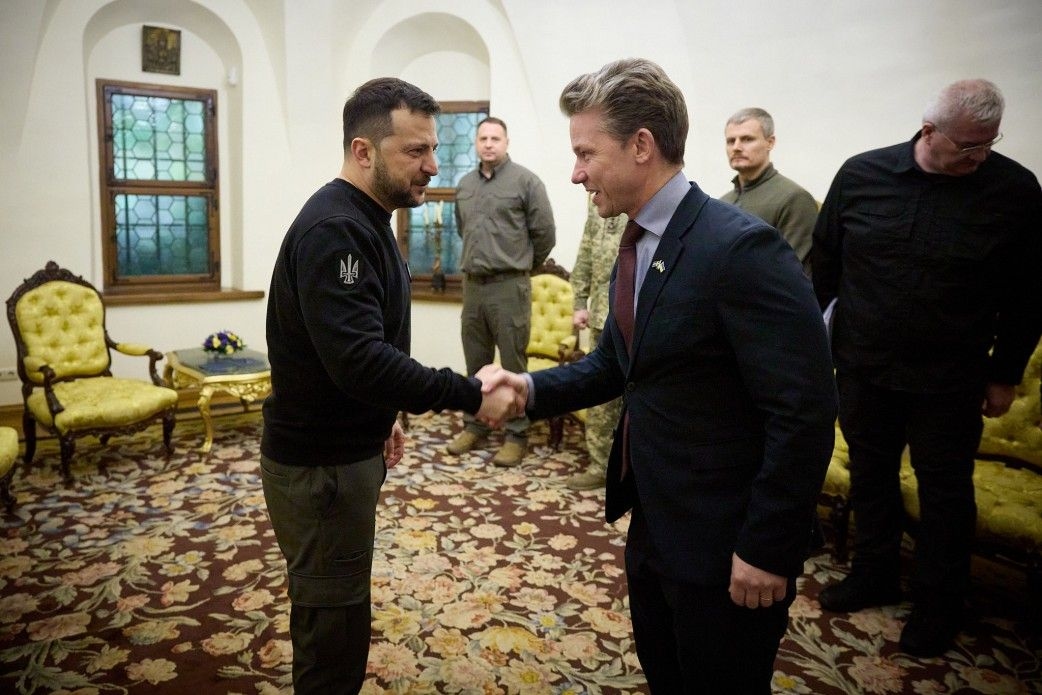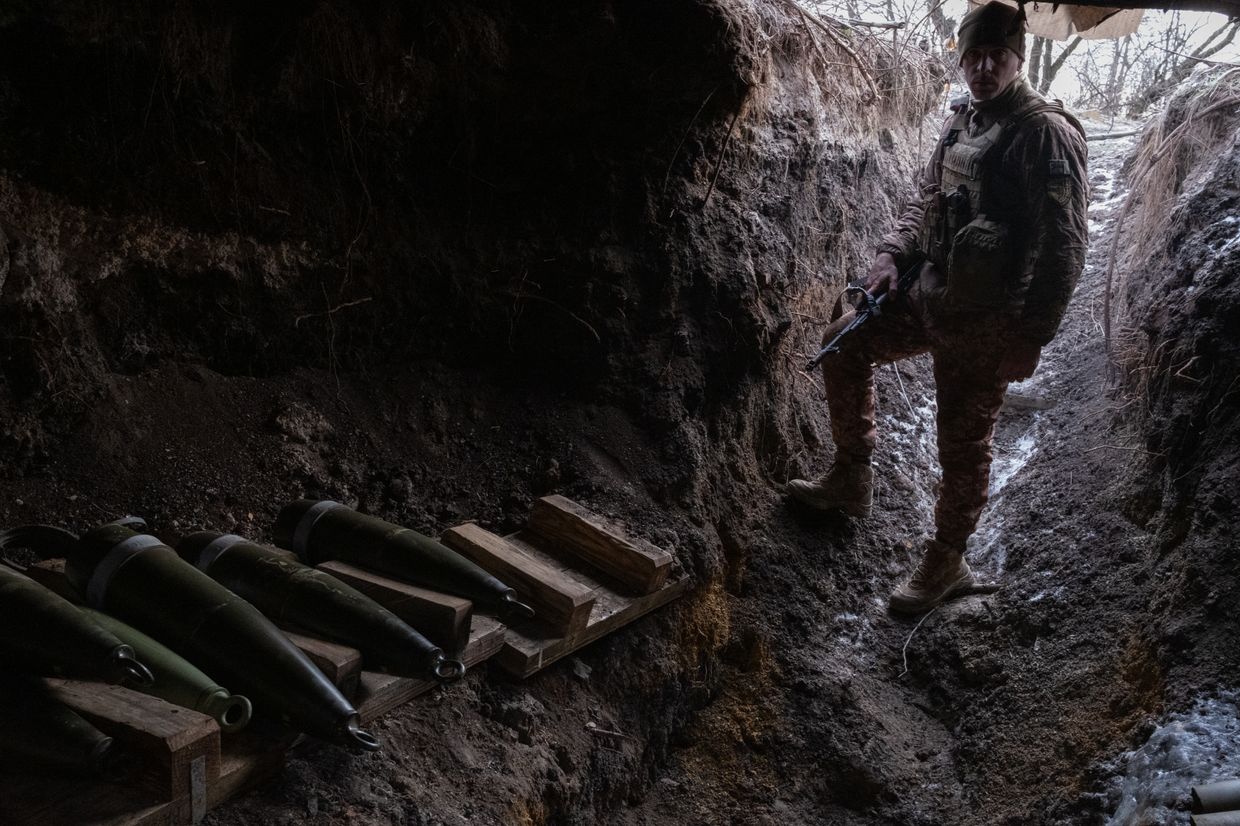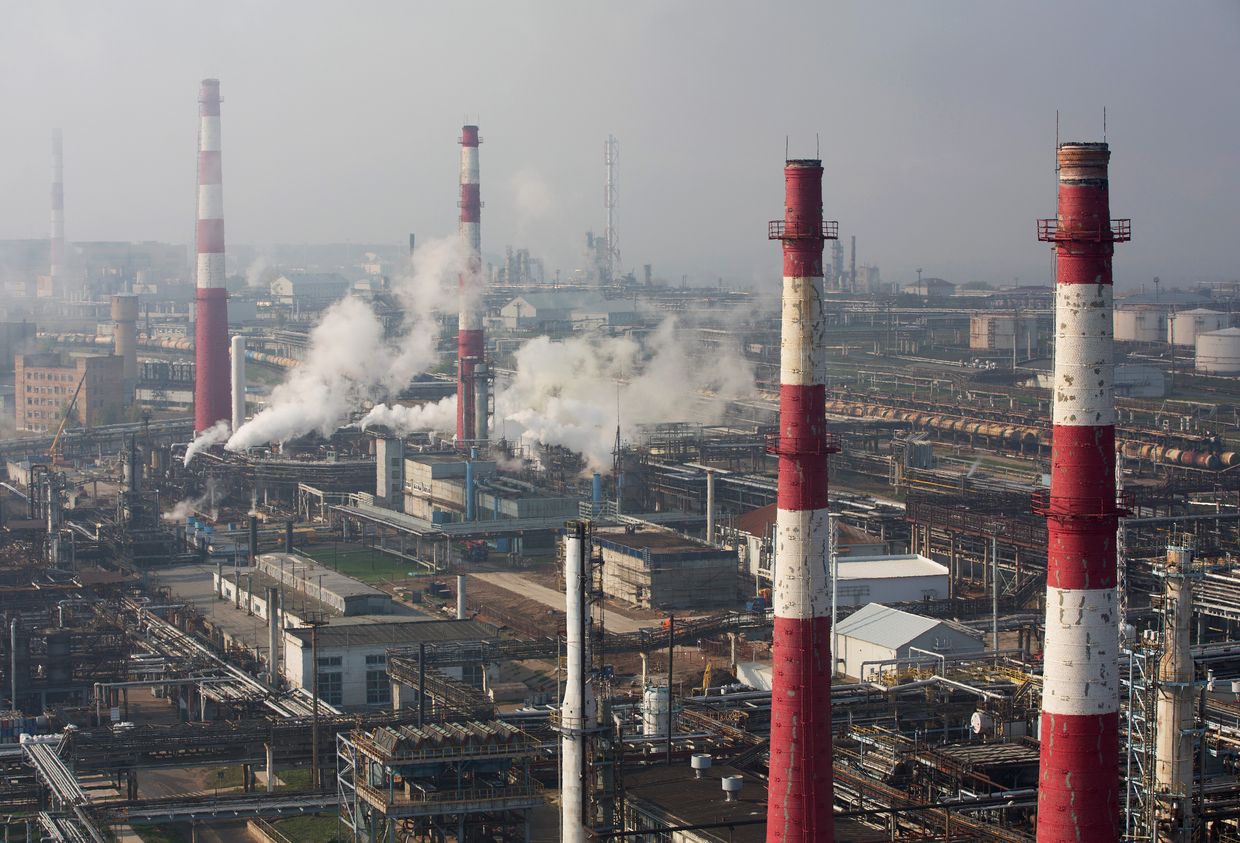Swedish defense minister on stepping up Ukraine aid and a new era in European security

In March 2024, Sweden became NATO’s 32nd member state after a lengthy application process triggered by Russia’s full-scale invasion of Ukraine.
Joining the alliance comes at arguably the most turbulent time in European security since the end of the Cold War, with Russia scaling up its military industrial complex as it continues to advance in Ukraine, and European leaders starting to openly discuss the threat of war.
Despite not yet being a member state, Stockholm has regularly contributed top-of-the line military equipment to Ukraine, including the Archer self-propelled howitzer and CV90 infantry fighting vehicle, both regarded as some of the most advanced products in their class in the world.
Sweden, through the factory of Norwegian defense company Nammo, is also home to one of the largest producers in Europe of 155mm artillery shells.
The plant is now working on a 24/7 schedule to increase production, but questions remain as to whether the company is able to do more.
On Feb. 20, Stockholm announced its largest ever single aid package, worth $682 million, including air defense, anti-tank weapons, boats, and more.
One much-awaited announcement is still yet to come though: Swedish-built Gripen fighter jets, which military analysts have argued would better suit Ukraine’s air force than the already-pledged F-16s.
The Kyiv Independent spoke to Swedish Defense Minister Pal Jonson on March 28 in Stockholm.
The Kyiv Independent: Firstly, congratulations on joining NATO. Can you tell us about how it feels and what it means for Sweden's trajectory going forward in history?
Pal Jonson: It means that Sweden is going to be safer, and NATO is going to be stronger with us inside the alliance. We are now covered by Article 5 and NATO's common defense planning; it's going to bring stability and security to the whole northern flank. Our armed forces have a high degree of interoperability, we've been exercising before, and we've been taking part in NATO's crisis amendments operations. Now we're also covered by the regional plans, and that's good for our security. It's a big juncture with our past because we’re coming from 200 years of military non-alignment. But due to Russia's full-scale invasion of Ukraine, it became evident for the Swedish population, but also for the political parties, that we needed NATO full-fledged membership.
The Kyiv Independent: We last spoke in Munich just a month ago, and there was a very gloomy atmosphere. How is it on your end behind the scenes a month after Munich? Do you feel things are moving in a more positive direction? What kind of action is being taken in the European community?
Pal Jonson: We presented our 15th support package to Ukraine, which was the biggest so far. It was important for us to do that in order to compensate; now that some of the support (around the world) has been going down, then we have to step up. What’s happened after that, of course, is that we've been receiving funding from the EU to ramp up production of 155mm caliber ammunition, which is necessary both for replenishing our own stocks and providing more ammunition to Ukraine.
We have also joined the Czech initiative to provide artillery ammunition from third countries as well. Things are mixed right now; I know that it’s been very hard in Ukraine. Of course, it's very encouraging what you (Ukraine) have been doing to be able to push away the Russian Black Sea Navy.
The Kyiv Independent: I was going to mention the initiative from Czech President Pavel to fund these shells. Many people were surprised how quickly countries came together to work on this. Why do you think that's happened now, and how involved is Sweden in the actual process of delivering them?
Pal Jonson: It was a very good initiative at the previous meeting with President Pavel when I was in Munich. He came and presented this initiative; it's good for several reasons. One thing is, of course, it's good that we're ramping up production inside Europe, but that's going to take time. That's going to take until next year or the year after. Then we're going to be able to triple (production), but here you can provide ammunition quickly, and we think that is very commendable, and we can do that without taking too much of our own stock. So we very much applaud the initiative by the Czech Republic in this regard. We've tasked our procurement agency FMV to establish a contract with their Czech counterparts. We can already provide the funding, and we could get things going within a few months. And I think that's absolutely crucial because Ukrainian soldiers need ammunition, particularly 155mm and 152mm.

The Kyiv Independent: Speaking of 155mm. We also know that Stockholm is working directly with Nammo to increase the production of shells here in Sweden. We've read that they are working around the clock, they're increasing the shifts. But can you tell us if there are plans to actually build new production facilities and assembly lines for these shells? Because if it just shifts, then there's an upper limit.
Pal Jonson: First, I understand Nammo has more than doubled its production. They're working five shifts at the level they haven't been working for decades. Aside from that, we're going to provide funding from the EU and the Swedish state to invest straight into the production facilities so they can ramp up production. They estimate that they can triple the production within a few years. We're doing this on a Swedish basis, but similar measures have also been taking place in Norway and Finland. I know they're all also opening a new ammunition plant in Denmark. So, things are progressing quite quickly.
Sweden is also leading an initiative called NORDEFCO++, which is five Nordics plus the Baltic countries, the Netherlands, the U.S., and the U.K., seeing how we can coordinate procurement. Then we can do joint procurement together, we can place bigger orders, which is good for the industry because then we can be prioritized, we can push the price a little bit, which means we get more ammunition, and they can ramp up production. So, several initiatives are taking place on a Nordic-Baltic basis as well.

The Kyiv Independent: After your meeting last month with President Volodymyr Zelensky in Ukraine, the press release said there were discussions about future joint production and weapon production initiatives between Sweden and Ukraine. Can you give us details about how advanced those plans might be and what area they'll focus on? More artillery, drones, or vehicles?
Pal Jonson: I think we stand open for any kind of collaboration.
I think it's good we're in the drone coalition together. We're learning a lot from the Ukrainian side. You're also now part of the ninth family member of the CV90s, from which we get reports continuously, which makes us able to refit the CV90s according to the experiences from the battlefield in Ukraine. In addition, I know the CEO of SAAB and BAE SYSTEMS, BAE Systems Hägglunds, BAE Systems Bofors, and also the head of the Swedish procurement agency were in Kyiv a few weeks ago to discuss these matters further, such as how we can ramp up production and what kind of joint production we could have as well.

The Kyiv Independent: There was this article about a week ago in the Financial Times about Washington potentially discouraging Kyiv from long-range strikes with their own drones at oil refineries in Russia. What is Sweden's position on this?
Pal Jonson: Our position is that Ukraine has the right to defend itself; it's being exposed to an illegal and unprovoked invasion. And as far as I understand, that, according to international law, provides you with the rights you need to protect yourself.
The Kyiv Independent: Finally, you mentioned the Gripen fighter jet training program earlier. Now, there's more and more noise in the Swedish parliament that this should be moved forward, and of course, Sweden has now joined NATO. Is there a specific reason at the moment getting in the way of a political announcement, or is there work being done to move this forward behind the scenes?
Pal Jonson: As we said, one of the conditions was, of course, for us to be covered by Article 5, and then it is NATO common defense planning until such a decision could be made. We've also been saying, within the fighter jet coalitions, there are deliberations about how we best could support the work that's going on right now to provide you (Ukraine) with the F-16, but I don't exclude the possibility of providing you with Gripen or other platforms as well. But deliberations are ongoing, and they take place within the fighter jet coalition.
Note from the author:
Hi, this is Francis Farrell, cheers for reading this article. We are in new phase of the war, which could potentially be stranger, tougher, and more uncertain than it has ever been so far. In a time when instability around the world is growing, and attention is fading when it is needed the most, please consider supporting our reporting.
















